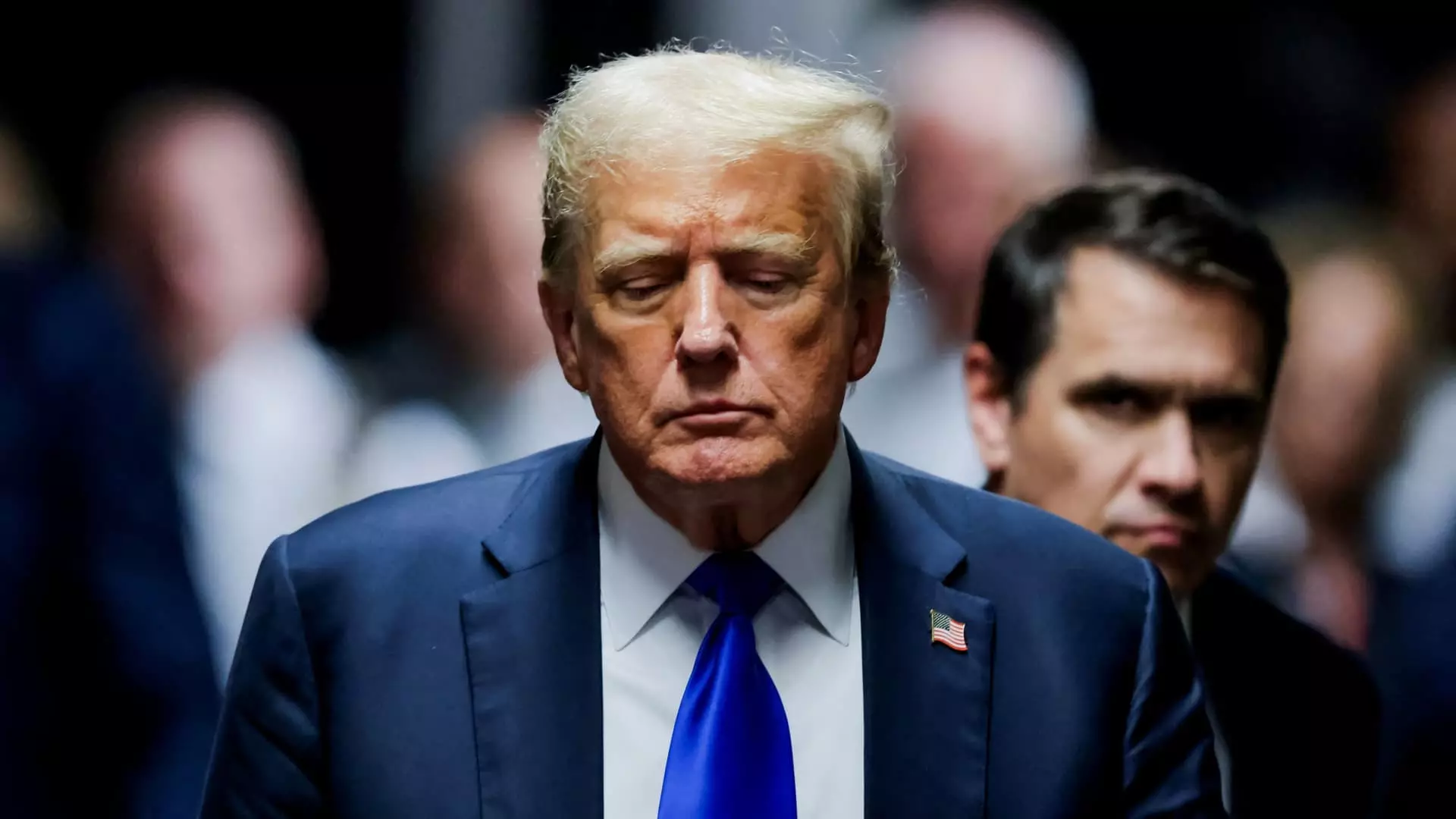The legal landscape surrounding former President Donald Trump continues to evolve, as he faces challenges related to his criminal conviction in New York. Recently, a Manhattan Supreme Court decision confirmed that Trump’s appeal to dismiss his hush money conviction on grounds of presidential immunity was denied. This ruling highlights not only the complexities of the legal arguments presented but also raises significant questions about the implications of such cases for the executive office and future presidents.
Manhattan Supreme Court Judge Juan Merchan’s ruling is emblematic of the enduring legal dilemmas that have come to define Trump’s post-presidency period. Trump’s legal team attempted to argue that the testimony from former White House employees and various pieces of evidence used against him were inherently rooted in actions that fell within the scope of his presidential duties. They referenced a Supreme Court decision that suggested presidents retain a degree of immunity for actions executed in their official capacity. However, Judge Merchan concluded that the prosecution’s actions—namely, the falsification of business records—were personal rather than official.
Merchan’s decision articulates a crucial distinction within constitutional law: while the president has certain protections, these protections do not extend to unlawful actions that could undermine the integrity of state and federal laws. This ruling sets a precedent that not only impacts Trump’s case but could have ramifications for the broader understanding of presidential accountability.
The legal ruling underscores the challenging terrain Trump must navigate as he appeals his conviction on 34 felony counts of falsifying business records. Although Merchan’s denial of the presidential immunity argument is a significant setback, the court has yet to address other claims put forth by Trump’s attorneys that could potentially lead to a dismissal of the charges. The continued pursuit of these claims introduces an element of uncertainty regarding the timeline for sentencing, potentially delaying any consequences until after Trump’s current presidential campaign concludes.
Moreover, there stands the poignant question of how this conviction might affect Trump’s political aspirations. Despite the guilty verdict, Trump’s legal counsel suggested a postponement of sentencing, which ties directly into how he may attempt to wield his legal strategies as political tools. The duality of Trump’s endeavors—operating within both the legal system and the political arena—creates a unique scenario seldom seen in American history.
The responses from Trump’s camp further illustrate the charged atmosphere surrounding his legal troubles. Spokesman Steven Cheung condemned the court’s decision as part of a “Witch Hunt” aimed at undermining Trump’s presidential transition process. This type of rhetoric is not new; it reflects a broader strategy of framing legal challenges as politically motivated attacks, a narrative that resonates with many of Trump’s supporters. Such framing may not only serve to galvanize his voter base but also creates a complicated relationship between legal accountability and political survival.
Cheung’s assertion that the prosecution is a violation of constitutional tenets adds layers to the complex discussion surrounding the intersection of law and politics. Can a former president effectively navigate the legal system while campaigning for office? This question looms large, especially as Trump asserts that the judicial proceedings are designed to obstruct his future endeavors.
Ultimately, the ruling on Trump’s hush money conviction brings to light significant deliberations regarding presidential powers and legal accountability. Judge Merchan’s detailed analysis serves as a reminder of the importance of upholding rule of law, irrespective of an individual’s previous status. As Trump continues to contest the charges against him, the legal outcomes may not only impact his immediate future but also shape the precedent for how the justice system interacts with the powers of the presidency.
The interactions between Trump’s legal battles and potential political ambitions suggest that the saga is far from over. With courtroom decisions potentially influencing his bid for re-election and altering the landscape of American politics, this case exemplifies the complexities of maintaining democratic integrity in the face of unprecedented challenges. As Trump assesses his next steps, the eyes of the nation remain fixed on a legal system that continues to navigate uncharted waters.


Leave a Reply